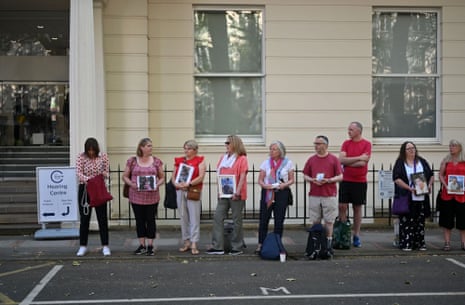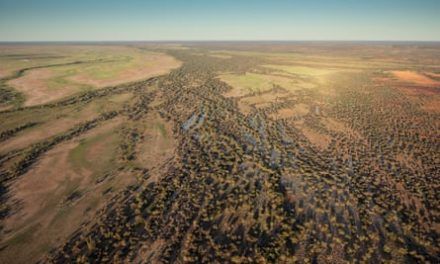Covid inquiry begins evidence-gathering stage of hearings
Good morning. Today marks the start of an event that will be in the news, and will dominate public policy thinking, for years. The Covid inquiry has been up and running since last year. But until now all the public hearings have been on procedural matters. This morning marks the start of the evidence-gathering stage of hearings and, after an opening statement this morning from Heather Hallett, the chair, and statements from counsel for the core participants, the first witnesses will be up tomorrow. These hearings focus on “resilience and preparedness” and the really interesting hearings will start next week, when David Cameron, George Osborne and Jeremy Hunt are expected to appear.
Yesterday Boris Johnson formally resigned as an MP, ending, or reducing, his exposure to parliamentary scrutiny. But the inquiry may expose him to a more intense level of scrutiny than he has faced before.
Public inquiries of this kind always take years, and so Johnson and other ministers may be assuming that judgment day will be some way off. But, as Paul Waugh pointed out in an i column recently, that would be to misunderstand how this inquiry is operating. He explained:
Crucially, some critics have missed the simple fact that the modular nature of this inquiry means that Hallett and her team will be making regular reports after each (a few months apart), complete with recommendations for action as well as key findings. Unlike the Chilcot inquiry into Iraq, there won’t be years of evidence and then “one big” report in 2026.
Here is Robert Booth’s guide to how the inquiry will operate.
And here is Nimo Omer’s guide to some of the wider issues at stake.
The inquiry proceedings get going as the Johnson “clown show” (as Scottish Labour leader Anas Sarwar calls it) continues to preoccupy the Conservative party – and most of the rest of Westminster too. I’ll be covering that as well.
Here is the agenda for the day.
Morning: Rishi Sunak chairs cabinet.
9.30am: Keir Starmer gives a speech at London Tech Week.
10am: Heather Hallett, chair of the Covid inquiry, opens the evidence-taking stage of its work with a statement. Then there will be opening statements from counsel. The first witnesses will appear tomorrow.
11.30am: Downing Street holds a lobby briefing.
Afternoon: Peers will debate the Public Order Act 1986 (serious disruption to the life of the community) regulations 2023, a new law that that makes it easier for the police to stop peaceful protests, and a motion tabled by the Green peer Jenny Jones to block the regulations.
If you want to contact me, do try the “send us a message” feature. You’ll see it just below the byline – on the left of the screen, if you are reading on a PC or a laptop. This is for people who want to message me directly. I find it very useful when people message to point out errors (even typos – no mistake is too small to correct). Often I find your questions very interesting too. I can’t promise to reply to them all, but I will try to reply to as many as I can, either in the comments below the line, privately (if you leave an email address and that seems more appropriate), or in the main blog, if I think it is a topic of wide interest.
Key events
Lord Bethell, a health minister during the pandemic, has told Sky News that the government should have started lockdown “earlier” and “harder”. He also said he thought that the Covid inquiry was going to take too long. These are from Sky’s Tamara Cohen.
Morning
The Covid inquiry starts public hearings today, with witnesses on pandemic preparedness
Former health minister Lord Bethell tells @skynews 3 years for public hearings is “far too long”.
And Tory civil war latest, as Boris Johnson vows “I’ll be back”.
— Tamara Cohen (@tamcohen) June 13, 2023
Was there a protective ring around care homes, as Matt Hancock used to say?
Former health minister Helen Whately won’t repeat the phrase to @guardian
Lord Bethell tells @skynews “we tried our best” with test capacity available.
— Tamara Cohen (@tamcohen) June 13, 2023
Lord Bethell, pandemic health minister pandemic @skynews:
– On lockdown: “we should have hit it earlier, & we should have hit it harder”.
– inquiry “far too long” & prep for next pandemic going “backwards”
– we “tried our hardest” on care homes but won’t repeat “protective ring”— Tamara Cohen (@tamcohen) June 13, 2023

Libby Brooks
The deputy leader of the SNP, Keith Brown, has insisted that Humza Yousaf is “sticking to principles of natural justice” as he resits demands to suspend his predecessor Nicola Sturgeon.
Yousaf has refused to bow to calls from opposition and a handful of SNP politicians to remove the whip from Sturgeon or suspend her membership following her arrest on Sunday as party of the ongoing investigation into the party’s finances.
Brown told BBC Radio Scotland:
Nicola Sturgeon has not been charged, she has not been accused of anything, the arrest I appreciate is a dramatic thing to have happened and its perhaps not well understood that arrest is to ensure the interview and information gathering is put onto a formal footing.
Asked about instances within the SNP of Sturgeon suspending Margaret Ferrier, Michelle Thomson and others because of their involvement with police investigations, Brown said “there are different circumstances in each of these cases”.
Brown said it was “fairly straightforward” that Yousaf had said he was not taking steps to suspend Sturgeon. Asked if there needed to be a more transparent process rather than simply having the first minister making the decision, Brown said Yousaf had taken early action to review governance and transparency in the SNP.
Brown said he had not spoken to Sturgeon in the last few days but that she had made a “very strong defence of her position” in the statement she posted immediately following her release that protested her innocence.

Covid inquiry begins evidence-gathering stage of hearings
Good morning. Today marks the start of an event that will be in the news, and will dominate public policy thinking, for years. The Covid inquiry has been up and running since last year. But until now all the public hearings have been on procedural matters. This morning marks the start of the evidence-gathering stage of hearings and, after an opening statement this morning from Heather Hallett, the chair, and statements from counsel for the core participants, the first witnesses will be up tomorrow. These hearings focus on “resilience and preparedness” and the really interesting hearings will start next week, when David Cameron, George Osborne and Jeremy Hunt are expected to appear.
Yesterday Boris Johnson formally resigned as an MP, ending, or reducing, his exposure to parliamentary scrutiny. But the inquiry may expose him to a more intense level of scrutiny than he has faced before.
Public inquiries of this kind always take years, and so Johnson and other ministers may be assuming that judgment day will be some way off. But, as Paul Waugh pointed out in an i column recently, that would be to misunderstand how this inquiry is operating. He explained:
Crucially, some critics have missed the simple fact that the modular nature of this inquiry means that Hallett and her team will be making regular reports after each (a few months apart), complete with recommendations for action as well as key findings. Unlike the Chilcot inquiry into Iraq, there won’t be years of evidence and then “one big” report in 2026.
Here is Robert Booth’s guide to how the inquiry will operate.
And here is Nimo Omer’s guide to some of the wider issues at stake.
The inquiry proceedings get going as the Johnson “clown show” (as Scottish Labour leader Anas Sarwar calls it) continues to preoccupy the Conservative party – and most of the rest of Westminster too. I’ll be covering that as well.
Here is the agenda for the day.
Morning: Rishi Sunak chairs cabinet.
9.30am: Keir Starmer gives a speech at London Tech Week.
10am: Heather Hallett, chair of the Covid inquiry, opens the evidence-taking stage of its work with a statement. Then there will be opening statements from counsel. The first witnesses will appear tomorrow.
11.30am: Downing Street holds a lobby briefing.
Afternoon: Peers will debate the Public Order Act 1986 (serious disruption to the life of the community) regulations 2023, a new law that that makes it easier for the police to stop peaceful protests, and a motion tabled by the Green peer Jenny Jones to block the regulations.
If you want to contact me, do try the “send us a message” feature. You’ll see it just below the byline – on the left of the screen, if you are reading on a PC or a laptop. This is for people who want to message me directly. I find it very useful when people message to point out errors (even typos – no mistake is too small to correct). Often I find your questions very interesting too. I can’t promise to reply to them all, but I will try to reply to as many as I can, either in the comments below the line, privately (if you leave an email address and that seems more appropriate), or in the main blog, if I think it is a topic of wide interest.
Join the exciting world of cryptocurrency trading with ByBit! As a new trader, you can benefit from a $10 bonus and up to $1,000 in rewards when you register using our referral link. With ByBit’s user-friendly platform and advanced trading tools, you can take advantage of cryptocurrency volatility and potentially make significant profits. Don’t miss this opportunity – sign up now and start trading!







Recent Comments